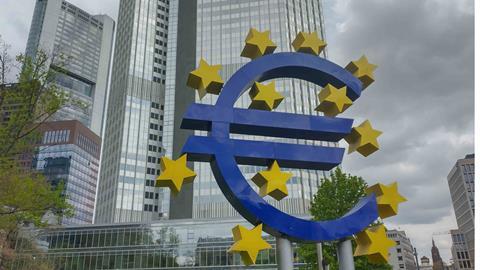Europe’s biggest real estate investment market is 64% down, according to CBRE, with Germany not predicted to recover anytime soon.

Volumes reached €13 bn in H1 2023, reflecting a decline of 64% compared with the previous year.
Commercial properties accounted for around three quarters, and one quarter was attributable to institutional housing.
At just under €6 bn, the second quarter also registered an unusually low result that had dropped another 16% below the already weak previous quarter and by 51% year-on-year.
CBRE said market momentum had slowed considerably in the segment of large-scale transactions compared with the medium and small categories. While 67 transactions above the €100 mln mark were completed in the first half of 2022, there have only been 21 deals so far this year.
Outlook
Fabian Klein, head of investment at CBRE Germany, said: 'It’s probably going to take a while until interest rates really come down and there is liquidity across the board again. Right now, we are expecting another ECB interest rate hike of a quarter of a percentage point at the end of July.’
‘Other interest rate measures to combat the intransigent high inflation rates cannot be excluded, and the recent signals from the ECB indicate that its restrictive monetary policy could be with us for a while longer.’
‘What this also means is that the financing conditions offered by banks for commercial real estate investments in Germany are set to become more expensive in the form of higher loan interest rates and margins. Consequently, the pressure on real estate yields will remain commensurately high.’
‘Aside from this, more stringent regulation on tightening capital backing for banks has had the effect of said banks substantially scaling back their exposure to real estate financing. Alternative lenders are more expensive in terms of financing conditions and will not be able to close the gap to conventional real estate financing.'
He added that once the interest rate trend and financing conditions had stabilized, market players should have some security in their investment decisions and therefore in bidding processes.
‘There are currently signs of somewhat greater momentum materializing in the market, as indicated by the number of properties and portfolios being prepared for sale,’ Klein said.
Sectors
Multifamily housing turned out to be the strongest asset class, capturing 24% of the overall transaction volume or €3.1 bn, followed by office buildings with a share of 22% or €2.8bn. Warehouse and logistics real estate, along with retail properties, took third and fourth place, each with just under €2.4 bn and a share of 18%
Of the established asset classes, retail was the one with the least decline, down 37% compared with the first half of 2022, supported by large-scale transaction such as KaDeWe in the first quarter and MYND & Galeria Weltstadthaus in the second, both in Berlin.
Forced sellers?
Investments categorized as core or core plus represented 67% of the total volume, up 5% compared with the year-earlier.
The proportion of opportunistic and value-added investments contracted from 38% to 27%.
'Although there are definitely “bargain hunters” in the markets, we are still not seeing any forced selling yet. This also applies to developers though the difficult framework conditions may well trigger a slight market consolidation in this case.'
'Many potential sellers who do not have to refinance just now or are generally not under pressure to sell are postponing such plans in anticipation of repricing on the market.'










